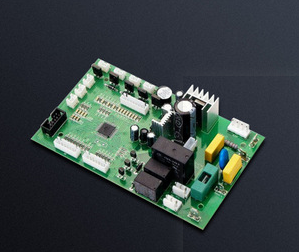In PCB production, the process is an extremely important link. The general processes include osp, immersion gold, gold plating, and tin spraying. Among them, tin spraying is the most common process in PCB production, and everyone is familiar with it. In the tin spraying process, it is divided into "leaded" and "lead-free". What is the connection between the two? What's the difference? Let's take a deep dive today.
1. Development history: "Lead-free" is developed and evolved on the basis of "lead". Since the 1990s, the United States, Europe, Japan and other countries have enacted legislation on the restrictions on the application of lead in industry, Lead soldering materials research and related technology development.
Second, the performance difference
1. Solderability

The melting point of the lead-free process is 218 degrees, and the melting point of lead-sprayed tin is 183 degrees. The solderability of lead-free solder is higher than that of lead-tin solder. The leaded process has relatively poor robustness, and it is prone to false soldering. However, due to the relatively low temperature of lead, the thermal damage to electronic products is less, and the PCB surface is brighter.
2. Cost difference
In the lead-free process, the tin bars used in wave soldering and the tin wires used in manual soldering have increased the cost by about 3 times; the cost of solder paste in reflow soldering has increased by about 2 times.
3. Security
Lead is a toxic substance, and long-term use causes harm to human health and the environment.
Even if the lead process has the characteristics of low price and brighter surface, under the pressure of environmental protection policies in recent years, the living space of lead has become smaller and smaller. The main reason is the sewage discharge of the PCB lead process and the presence of lead. After the PCB product is discarded, whether it is disposed of by burying or incineration, the lead component will eventually return to the environment through the media, causing serious lead pollution and bringing great harm to the environment and human survival.
With the increase of domestic environmental protection awareness, the Chinese government has also promulgated relevant regulations on this matter. From January 1, 2018, the most stringent "Environmental Protection Law" in history has been implemented, and environmental protection taxes have been imposed on all enterprises, showing the country’s " The determination to adjust the structure and promote transformation. In addition, foreign countries have also issued relevant laws and regulations. After the implementation of the EU's environmental protection directives, failure to pass the EU certification means that they cannot enter the European market, thus losing their market share in Europe.
The promulgation of relevant domestic and foreign policies and regulations has made many domestic PCB factories overwhelmed to close their factories. The implementation of lead-free is a huge challenge for PCB circuit board factories, facing the double test of corporate quality and technical strength. The good operation of the lead-free process is not only a simple replacement of lead-free production equipment, but also involves the quality of employees, quality management and other aspects, and directly increases production costs.
Only by realizing the ecological advantages, PCB companies can improve their core competitiveness, and only by continuous innovation can the PCB industry meet the rigid indicators of environmental protection more efficiently and quickly, and ultimately reduce the company's operating costs. The PCB industry can only move forward with light equipment without the burden of environmental protection. Therefore, for PCB companies, it is a general trend to abandon the "lead" process.